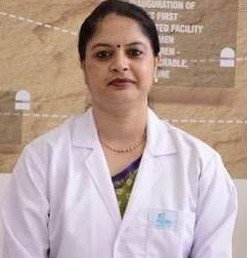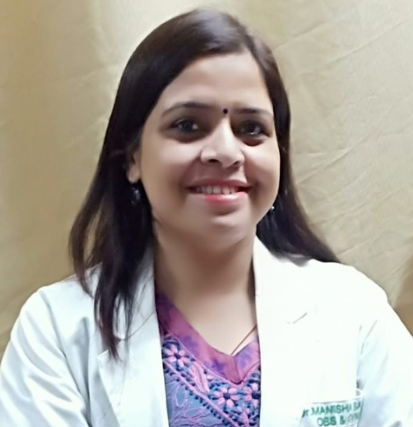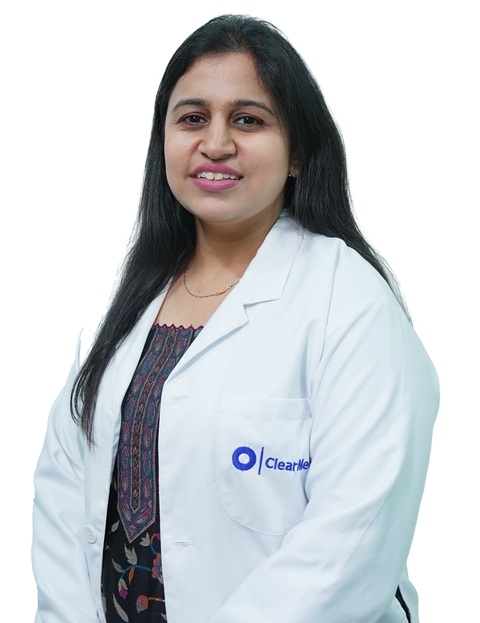Abortion: Medical and Surgical Options Explained
Dr. Arti Sharma

Treatment Duration
10 Minutes
------ To ------40 Minutes
Treatment Cost
₹ 3,000
------ To ------₹ 75,000

According to the updated MTP Act 2021, a pregnant woman may terminate pregnancy up to 20 weeks into gestation. Choice to opt for abortion can be due to health concerns or personal choice.
Are you wondering what the abortion pill costs and is it safe? What are the associated risks for surgical ones? In this blog, we'll answer these questions and explore various types of this procedure. Read on!
Procedure Name | Abortion |
Alternative Name | Pregnancy termination |
Conditions Treated | Unwanted pregnancy |
Treated By | Gynaecologists |
You can check Abortion Cost here.
What is Abortion?
Abortion is the medical procedure of ending a pregnancy by removing the foetus from the womb. It can be an overwhelming decision influenced by individual beliefs, situations, and legal regulations.
One common method is taking an abortion pill to induce termination. This option is recommended primarily in the early stages of pregnancy.
Abortion Videos by HexaHealth
Expert Doctors (10)
NABH Accredited Hospitals (10)


Conditions Treated with Abortion
There are many reasons why a woman would have to go for an abortion. Listed below are the key conditions where termination may be needed:
Health Complications: In cases where the gestation poses a risk to the health or life of the pregnant person, abortion may be recommended. This may include ectopic pregnancy (implantation outside the uterus) and severe preeclampsia (hypertension).
Foetal Abnormalities: Identifiable defects in the foetus, such as limb reduction, may lead to the decision to terminate the pregnancy.
Abortion Procedure
Abortion procedures vary depending on factors such as the stage of the pregnancy and individual preferences. The main types of abortion include:
Medical
Also known as the "abortion tablets or pill," this method involves:
Administration of first medication (mifepristone)
Wait period (24-48 hours)
Administration of second medication (misoprostol)
Expulsion of the embryo or foetus from the uterus
Surgical
This involves procedures performed by a healthcare provider to remove the pregnancy from the uterus. The specific method used may differ based on gestational age and medical history. Common approaches include:
Vacuum Aspiration (Suction Curettage): This procedure involves suctioning to remove the embryo or foetus from the uterus (womb). The method is preferred during the first trimester.
Anaesthesia is administered.
The cervix is dilated.
A thin tube connected to a vacuum device is inserted into the uterus.
A curette may be used to ensure the uterus is empty.
The procedure usually lasts for 5 to 10 minutes.
Dilation and Evacuation: Similar to D&C, it is used for pregnancies further in gestation (second trimester). It involves dilating the cervix and using surgical instruments to remove the foetus and placental tissue. The step-by-step process is as follows:
Anaesthesia is administered.
The cervix is dilated for a few hours to a day before the procedure.
Forceps and suction are used to remove the foetus and placental tissue from the uterus.
The procedure may take 10 to 20 minutes.
Before and on the Day of Abortion
Preparation and understanding of what to expect before and on the day of abortion are crucial for individuals undergoing the procedure. It normally goes in the following way:
Before Surgery
Preparation prior to surgery is essential for ensuring safety and optimal outcomes. The overview of important considerations are:
Parameters | Pre-requisites |
Pre-op Assessment |
|
Risk Evaluation |
|
Anaesthesia Selection | Local or general anaesthesia |
Fasting |
|
On the Day of Surgery
Preparation and procedural steps on the day of surgery are critical for ensuring a smooth and safe experience. The outline is given below.
Parameters | Pre-requisites |
Consent | Mandatory |
Surgical Preparation |
|
Physical Evaluation | Checking for vital signs (blood pressure and stress test) |
Anaesthesia Administration | Administering the chosen anaesthesia (local or regional) |
After Surgery and Recovery
After the surgical abortion, care and monitoring are needed to ensure a smooth recovery process. Patients receive instructions for self-care and are checked for any complications.
The Recovery Process in Hospital
Patients undergo a monitored recovery period in the hospital post-surgery to ensure their well-being. The following is what patients can expect:
Observation for vital signs and potential complications.
The patient will be provided with pads for post-surgery bleeding.
Pain management with medications, if needed.
Monitoring for any adverse reactions to anaesthesia or surgery.
Recovery Process/Expectation After Hospital Discharge
Upon discharge, patients continue their recovery process at home, following specific guidelines to promote healing and minimise discomfort.
Rest and limited activity to aid recovery.
Pain management medication as prescribed.
Monitoring signs of infection or other complications.
First Follow-Up Appointment
The first follow-up appointment after discharge is crucial for assessing recovery progress and addressing any concerns or complications. One can expect:
Evaluation of recovery status and healing process.
Discussion of any ongoing symptoms or issues.
Further instructions for post-operative care.
Risks and Complications of Abortion
While abortion is generally considered safe, like any medical procedure, it carries potential complications. Understanding these risks is important for making informed decisions and ensuring proper medical care:
Risk of infection in the uterus or pelvic area
Heavy bleeding may require medical intervention
Failure to completely remove all pregnancy tissue from the uterus
Allergic reactions to medications, such as rash, itching, and swelling
Damage to the womb
When to consult a doctor?
It's important to consult a doctor if the woman experiences any concerning symptoms or complications following an abortion procedure. The key aspects to keep in mind are:
Heavy or prolonged bleeding
Severe abdominal pain or cramping
Fever or chills
Foul-smelling vaginal discharge
Signs of infection, such as redness, warmth, or swelling
Cost of Abortion
The surgery and abortion pill cost differs due to factors such as the gestational age of the pregnancy. However, the general cost ranges are:
Abortion | Estimated Cost Range |
Medical | ₹ 3,000 to ₹ 8,000 |
Surgical | ₹ 18,000 to ₹ 75,000 |
Note: The figures mentioned above are just estimates. Please contact HexaHealth experts for accurate information.
Factors that may affect the cost of abortion include:
Gestational Age: The stage of pregnancy can impact the complexity of the procedure and may influence the cost.
Location: Prices differ based on the region where the procedure is performed.
Additional Services: Anaesthesia, laboratory tests, or ultrasounds may incur extra charges.
Insurance Coverage: This may affect out-of-pocket expenses for abortion services.
Takeaway
Deciding whether to undergo an abortion can be emotionally challenging. However, it's essential to prioritise your well-being. Seeking support from trusted doctors and family members can help you make informed choices.
HexaHealth is here to support you every step of the way. Our healthcare providers offer confidential consultations and personalised care. Whether you have questions about how abortion kits work, their costs and risks, we are here to provide you with resources and guidance. Get in touch!
Suggested Reads
| Surgical Abortion | Medical Abortion |
| Dilation & Curettage | Infertility |
Frequently Asked Questions (FAQ)
What is abortion, and how is it defined medically and legally?
Abortion is medically defined as the removal of the embryo or foetus from the uterus. Legally, it is mandated that a pregnancy must not be terminated beyond 20 weeks of gestation in India.
What are the different types of abortion procedures available?
Various approaches for abortion help terminate pregnancies depending on factors such as gestational age and individual circumstances. The main types include:
Medical abortion (abortion pill)
Vacuum aspiration (suction curettage)
Dilation and evacuation (D&E)
How does medication abortion differ from surgical abortion?
Medication abortion involves taking medicines to induce abortion in the early stages of pregnancy. In contrast, surgical abortion involves procedures performed to remove the foetus from the uterus.
Are there any risks of abortion?
While abortion is generally considered safe, like any medical procedure, it carries potential complications. The common risks associated are:
Infection
Excessive bleeding
Incomplete abortion
Adverse reactions to anaesthesia or medications
What do I do if I am unmarried and pregnant?
If you're unmarried and facing an unplanned pregnancy, consider discussing your options with a trusted healthcare provider like HexaHealth or a counsellor. They can provide information and support tailored to your situation.
How much does an abortion procedure cost?
The cost of an abortion procedure varies depending on factors such as the type of procedure and gestational age. The estimated costs are:
Medical: ₹ 3,000 to ₹ 8,000
Surgical: ₹ 18,000 to ₹ 75,000
Is abortion legal in India?
Yes, the Medical Termination of Pregnancy (MTP) Act abortion is legal in India. It allows for termination of pregnancy under specified conditions and up to 20 weeks of gestational age.
How does gestational age impact the legality and availability of abortion?
Gestational age often dictates the legality and availability of abortion, with restrictions increasing as it progresses. In many jurisdictions, abortion laws vary based on gestational age. More limitations are imposed in the later stages of pregnancy.
Are there any common myths about abortion?
Despite widespread medical knowledge, several myths persist surrounding abortion. The common misconceptions include:
Abortion causes infertility
Abortion is always unsafe and risky
Most abortions are performed in the later stages of pregnancy
What are the ethical considerations surrounding abortion?
Ethical considerations around abortion involve questions about a person's right to decide about their body and the potential value of foetal life. The major factors involved are personal beliefs, socioeconomic situations, and cultural influences.
How does abortion impact mental and emotional health?
Abortion can affect mental and emotional health differently for each individual. It can potentially cause feelings of relief, sadness, or guilt. Supportive counselling and access to resources can help individuals cope with their emotions.
What are the advancements in abortion technology and techniques?
Advancements in abortion technology and techniques have led to improved safety, efficacy, and accessibility. The key developments include:
Introduction of medical abortion pills
Minimally invasive surgical techniques such as vacuum aspiration
Telemedicine and remote consultations for abortion care
Enhanced ultrasound imaging for gestational age determination
References
All the articles on HexaHealth are supported by verified medically-recognized sources such as; peer-reviewed academic research papers, research institutions, and medical journals. Our medical reviewers also check references of the articles to prioritize accuracy and relevance. Refer to our detailed editorial policy for more information.
- Malik M, Siaa Girotra, Mrunali Zode, Basu S. Patterns and Predictors of Abortion Care-Seeking Practices in India: Evidence From a Nationally Representative Cross-Sectional Survey (2019-2021). Cureus [Internet]. 2023 Jul 1;

- World Health Organization. Abortion [Internet]. World Health Organization. World Health Organization; 2021.

- Robertson R. Conditions That Make Abortion Medically Necessary [Internet]. EverydayHealth.com. 2022.

- Traci C. Johnson. What Are the Types of Abortion Procedures? [Internet]. WebMD. WebMD; 2017.

- Services D of H & H. Abortion procedures - surgical [Internet]. www.betterhealth.vic.gov.au.

- What Is a Medical Abortion? [Internet]. Cleveland Clinic.

- NHS. What happens - Abortion [Internet]. NHS. 2020.

- NHS Choices. Risks - Abortion [Internet]. NHS. 2020.

Last Updated on: 13 October 2025
Reviewer

Dr. Arti Sharma
MBBS, DNB Obstetrics and Gynaecology, Diploma In Cosmetic Gynaecology
9 Years Experience
Dr Arti Sharma is a well-known Obstetrician and Cosmetic Gynaecologist currently associated with Aesthetica Veda in Bengaluru. She has 9 years of experience in Obstetrics and Cosmetic Gynaecology and worked as an expert Obstetrician...View More
Author

Charu Shrivastava
BSc. Biotechnology I MDU and MSc in Medical Biochemistry (HIMSR, Jamia Hamdard)
3 Years Experience
Skilled in brand marketing and SEO-driven medical content that educates and engages patients, healthcare professionals, and the general public. With medical writing and proofreading expertise, she ensures accuracy,...View More
Abortion in Top Cities
Abortion Cost in Top Cities
Latest Health Articles
Other Treatments in Your City

































